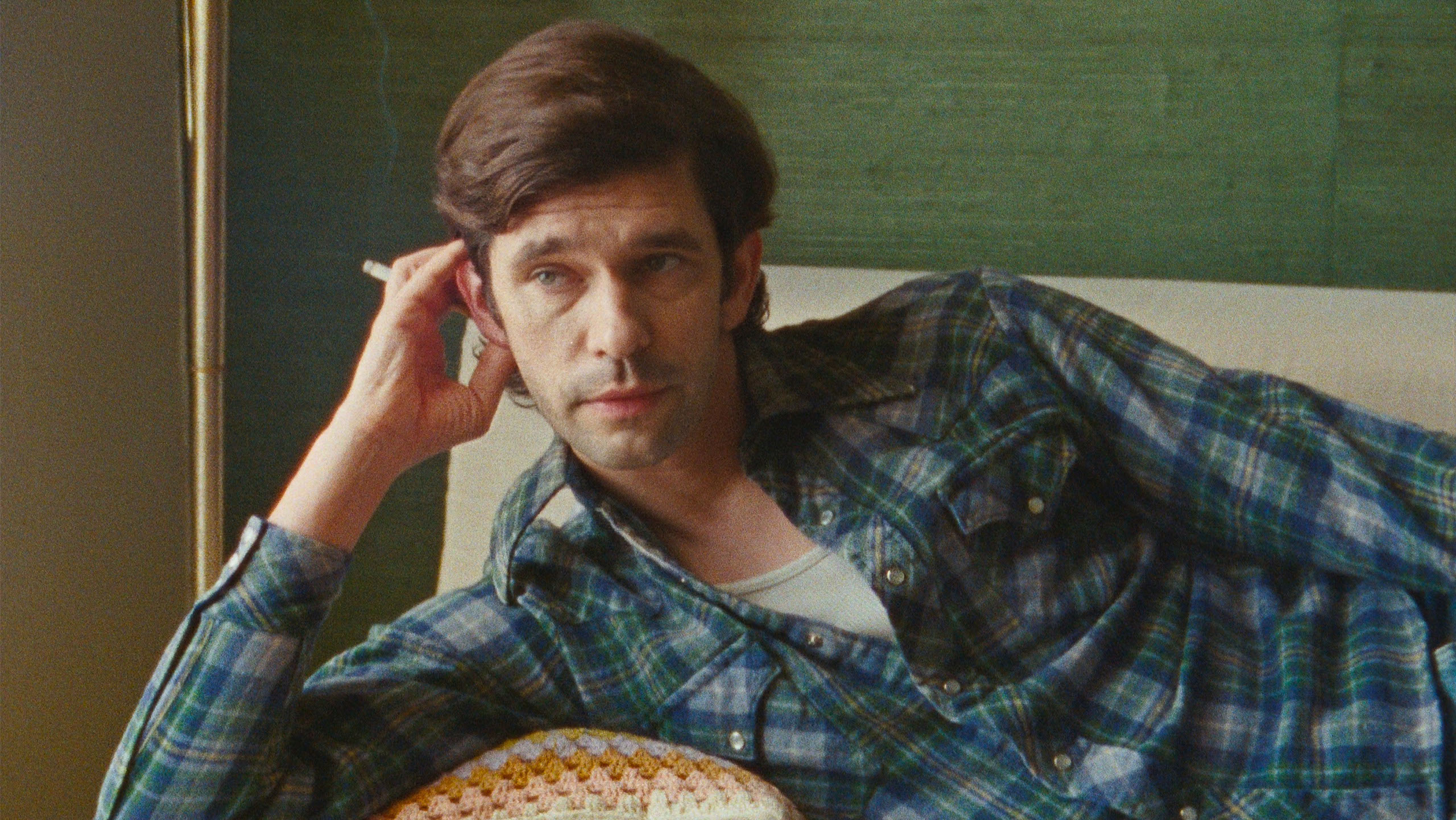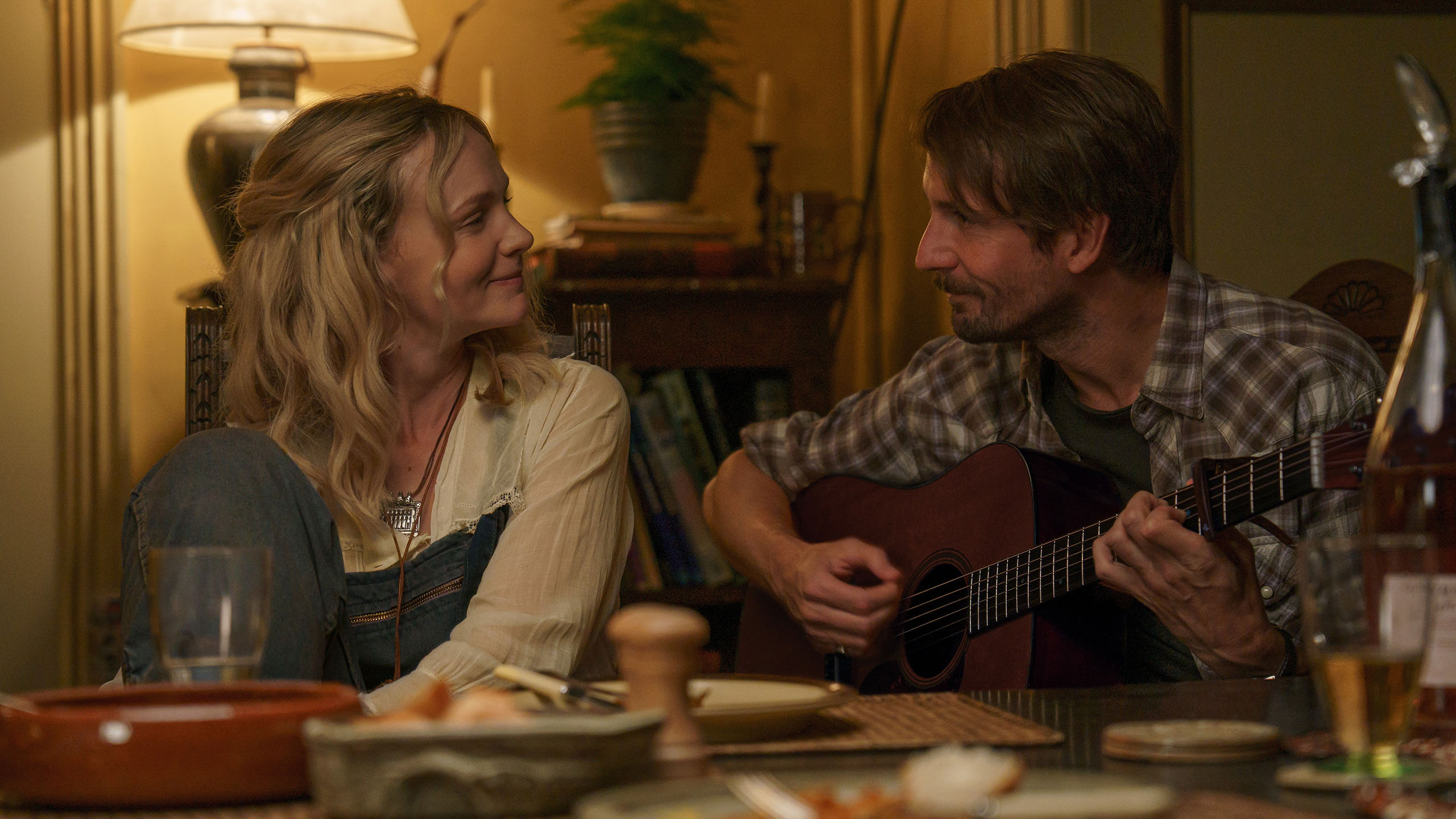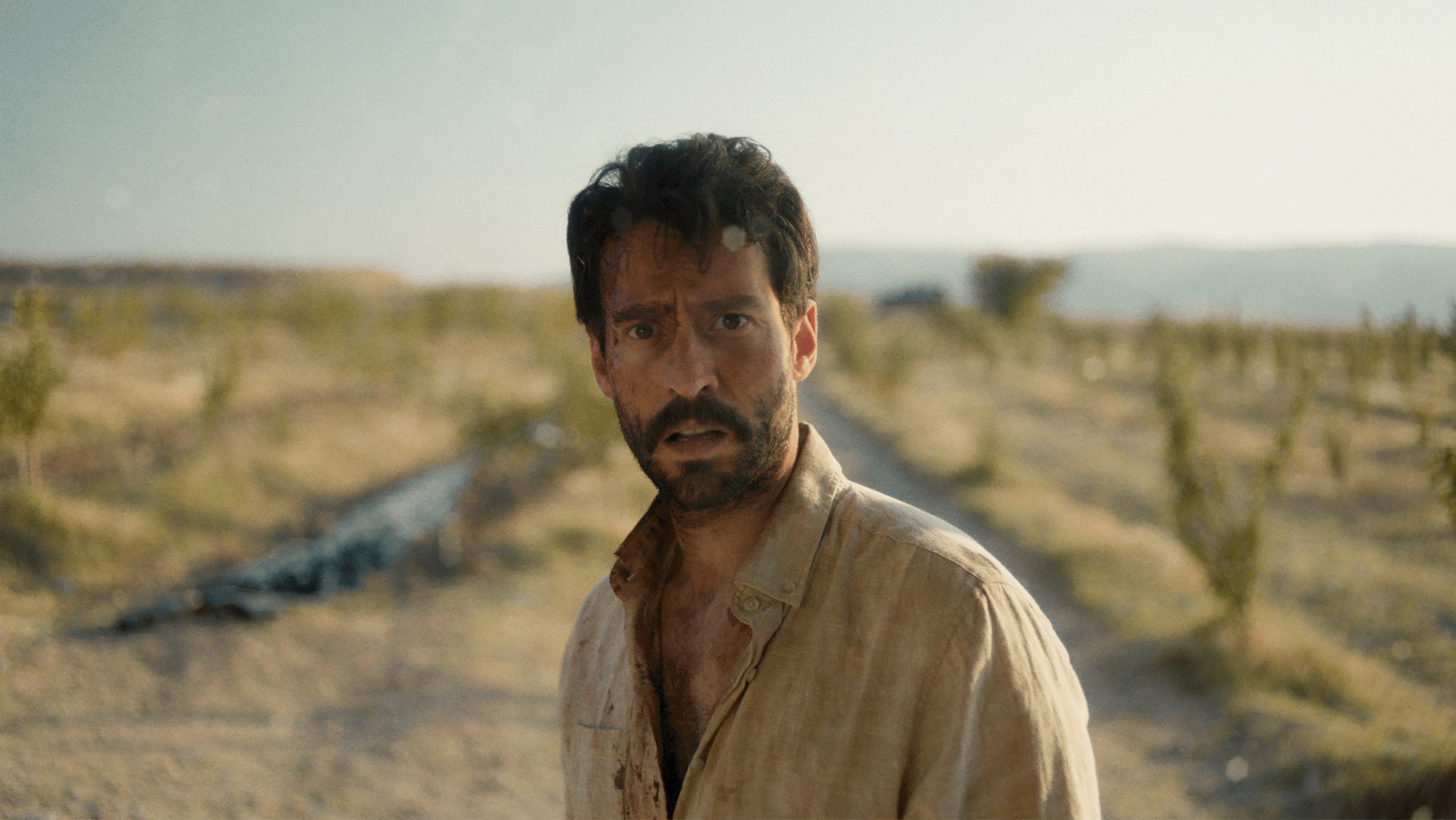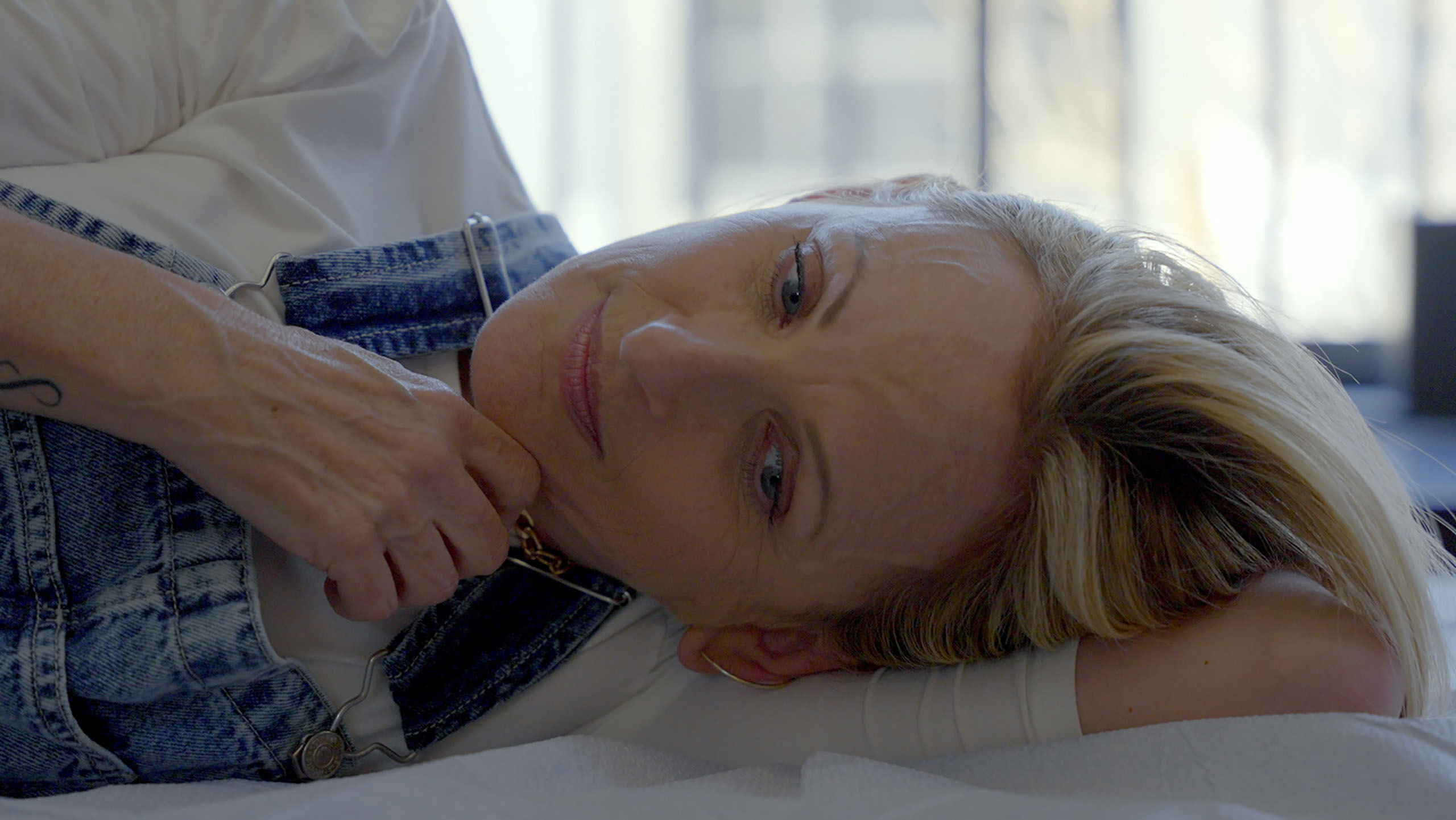Last year’s Sundance Film Festival boasted a number of narrative features that would go on to critical acclaim and become potential awards contenders like A Real Pain, Between the Temples, A Different Man, Exhibiting Forgiveness, Dìdi, I Saw the TV Glow, The Outrun, Kneecap, Reinas and Sujo. I would also include the queer-themed film, Sebastian, which should have been in the conversation, if only for the stunning lead performance by newcomer Ruaridh Mollica, who was also in this year’s Sukkwan Island.
But many in the media groused about the middling quality of the films and saw that reflected in the snail-paced distribution deals.
Two of the above titles did receive Oscar nominations—A Real Pain (Original Screenplay & Supporting Actor) and A Different Man (Hair & Makeup). Kneecap was shortlisted for International Feature. Two others were submitted by their respective countries in the International Feature category: Reinas (Switzerland) and Sujo (Mexico). Between the Temples would score a victory with the New York Film Critics Circle for Carol Kane’s extraordinary work. Most of the rest would go on to receive a few critical group mentions.
In 2023 and 2022, none of Sundance’s selections moved on to Oscar recognition, although in 2023 Searchlight Pictures acquired Magazine Dreams, seeing the potential for a major Best Actor push for Jonathan Majors (it’s an astonishing performance)—that is until assault allegations surfaced squashing year-end release plans. Searchlight returned the rights back to the producers. The film is finally set to open this March via Briarcliff Entertainment.
2025 could be a game changer, even though, once again, entertainment scribes are moaning about how slow deals are being made. Six films have acquired distribution so far—one of the first to sell, Together, a body horror film had Neon all over it–no surprise with the success of The Substance. And, most recently, Peter Hujar’s Day was bought by Janus Films/Sideshow. More will follow for certain.

Some journos have complained about quality again. But based on what I was able to see—virtually–there are several films and performances that should land in consideration, if the Academy members do their cinematic duty and actually watch more than just a handful of films!
What do I mean?
When the 97th nominations were announced last month, it appeared that AMPAS had only sought out a small number of worthy contenders when making their selections. Category after category—especially in the top 8—the same titles were seen over and over again with only 14 films represented. Last year it was also 14 In comparison, in both 2022 and 2021, it was 18. Important to note that the horrific fires could have played a role in prioritizing this year.
And a new stat emerged in the 2024 race. Never in the history of Oscar nominations have all the actors in contention for both Best Actress and Best Supporting Actress come from the Best Picture lineup. That’s a first.
Best Actress has only lined up with Best Picture contenders twice before, in 1977 and 1939—unless you count 1934 when there were only 3 Lead Actress nominees—four if you count Bette Davis’s write-in votes for Of Human Bondage—which the Academy, strangely, has now embraced (check out the website), And if you do count it, that kills 1934, so we’re back at only twice.
The Best Supporting Actress category was added in 1936 and has only seen all 5 nominees come from the Best Picture titles twice as well, in 2016 and 1988.
I bring this stat up because it feeds into the notion that the voters didn’t take the time to watch Between the Temples, for example, otherwise how could Carol Kane have been overlooked—especially considering the performances AMPAS did select? (with respect to Zoe and Ariana)
So, how are these smaller films supposed to get noticed, especially if entertainment journalists and critics’ awards keep bestowing accolades on the same names over and over again? It should be AMPAS’s job to seek them out. And they don’t have far to go, almost all the films eligible are uploaded to the Academy Screening Room. It becomes a matter of time, research and effort.
But I digress…yet not really. I implore Academy members to start their viewing early. And Sundance is a good place to begin. Of course, the fest is over and many of the films are awaiting acquisition. But most, hopefully, will sell.
Here are this year’s potential awards front-runners that premiered at Sundance.
I’ll begin with the films I was unable to see because they were only screened live and not online. FYI: the reps for these films, sadly, did not provide alternate screening opportunities for said films.

The most ballyhooed on the list has to be Bill Condon’s adaptation of the musical (adapted from the movie, adapted from the book), Kiss of the Spider Woman, boasting a dazzling (so, I’m told) performance by Jennifer Lopez (never nominated). In addition, buzz surrounds The Ballad of Wallis Island starring Carey Mulligan, Max Walker-Silverman’s Rebuilding with Josh O’Connor and Mary Bronstein’s If I Had Legs I’d Kill You, a Rose Byrne vehicle which A24 has allegedly shown interest in. Sophie Hyde’s Jimpa is said to have a sterling turn by John Lithgow. And Ira Sachs’ Peter Hujar’s Day has been mentioned for Ben Whishaw’s work.
Now, on to those I was able to see beginning with two queer-themed gems, that picked up a few awards at Sundance.
Writer-director-co-star James Sweeney’s hilarious and bittersweet tale of ID twin trauma-bonding, Twinless, won the Audience Award in the U.S. Dramatic category. Co-lead actor Dylan O’Brien, who was also fab in last year’s Sundance fave Ponyboi, won U.S. Dramatic Special Jury Award for Acting. He’s amazing in this gay-friendly film and, when it finds distribution, he will be one to watch. Controversy hit ‘Twinless’ when graphic sex scenes and plot reveals appeared on social media prompting Sundance to remove the film from the viewing platform.

In addition to O’Brien, look out for Tom Blyth’s powerful work in Carmen Emmi’s gay-themed thriller, Plainclothes, which centers on a closeted cop who works undercover entrapping gay men but then falls for one. Russell Tovey and Maria Dizzia co-star and provide fine support. The film won the U.S. Dramatic Special Jury Award for Ensemble Cast. Distribution pending.
Théodore Pellerin’s impressive performance as the manipulative fan in Alex Russell’s sly critique of social media stardom, Lurker, could gain indie awards traction. MUBI, which released The Substance, just acquired it.
A24 was smart to scoop up Sorry, Baby, writer-director-lead Eva Victor’s funny and authentic look at the aftermath of sexual assault. The movie won the Waldo Salt Screenwriting Award: US Dramatic. It’s one to watch when it’s released later this year.
Netflix acquired Clint Bentley’s evocative Train Dreams about a day laborer trying to start a family and build a life at the start of the 20th century. Best chances here are with Joel Edgerton’s extraordinary work.

Hailey Gates’ searing satiric feature debut, Atropia, is set in 2006 in a wacky military prep facility and won the U.S. Grand Jury Prize: Dramatic. While dark comedy is usually not AMPAS’s cup of tea, Don’t Look Up did get a Best Picture nomination. No distribution yet.
Rashad Frett won the U.S. Dramatic directing award for Ricky, about a newly released 30-year-old man who was incarcerated at 15. The indie boasts an excellent performance by Stephan James as well as a terrific supporting ensemble led by Sheryl Lee Ralph.
If Rohan Parashuram Kanawade’s feature debut, Sabar Bonda (Cactus Pears) becomes either India, Canada or the UK’s International feature entry it could have a shot at a nod (those are the 3 producing countries cited). The film is a meditative examination of queer love in the lives of the lower castes of India. The movie won the World Cinema Grand Jury Prize: Dramatic.

Ditto with Alireza Khatami’s Lynchian psychological thriller, The Things You Kill, from Turkey, France, Poland and Canada (whose director is Iranian-American!). This exhilarating look at paternal abuse and familial vengeance was, arguably (and I’d welcome debate), the boldest film to debut at Sundance this year and picked up the Directing Award in the World Cinema Dramatic category.
Celebrated documentaries at Sundance last year included Black Box Diaries, Sugarcane, Soundtrack to a Coup d’état, Porcelain War, Daughters, Ibelin, Will and Harper, Union, Eno and Frida.Amazingly, all ten would make the Oscar short list of 15! And even more incredible, the first four were all nominated for Best Documentary Feature.
2023 gave us 2 nominees, The Eternal Memory and the eventual winner, 20 Days in Mariupol as well as four shortlisted: Going to Mars: The Nikki Giovanni Project, Beyond Utopia, A Still Small Voice, Still: A Michael J. Fox Movie.
2022 would, again, see four of the five Oscar nominees premiere at Sundance: Fire of Love, All that Breathes, A House Made of Splinters and the winner, Navalny. Three others made the shortlist: Descendant, The Janes, The Territory
So, basically, Sundance is the place to look to get a great idea of how the Doc race will end up. Here are some the contenders:
Kevin Macdonald’s One to One: John & Yoko, which Magnolia Pictures acquired, takes a look at 18 months in the life of the iconic couple.
Seeds by Brittany Shyne, which won the U.S. Doc Grand Jury Prize, is about Black generational farmers in the American South.
Prime Minister, one of my favorite Sundance docs, directed by Michelle Walshe and Lindsay Utz, examines the leadership of former New Zealand PM Jacinda Ardern and has a few urgent things to say about world politics. The film won the World Cinema Doc Audience Award.
Oscar winner Mstyslav Chernov (20 Days in Mariupol) picked up the World Cinema Doc Directing Award for his harrowing new feature, 2000 Meters to Andriivka, which follows a Ukrainian platoon’s attempt to liberate a destroyed village.
Anthony Benna’s André is an Idiot, winner of the U.S. Doc Audience Award, is an oddball work about a man dying because he didn’t get a colonoscopy! It also won an editing award.

Shoshannah Stern’s Marlee Matlin: Not Alone Anymore chronicles the trailblazing Deaf actress from her Oscar win at 21 through her years of activism culminating in CODA’s Best Picture win.
A special jury prize was awarded to David Borenstein’s Mr. Nobody Against Putin, where a respected teacher dares to challenge Putin’s attempt to brainwash and indoctrinate young students.
Another special jury prize went to Life After, directed by Reid Davenport. The doc investigates what happened to a disabled California woman after she ignited a national “Right to Die” debate.
Geeta Gandbhir nabbed the U.S. Doc Director Award for The Perfect Neighbor about the escalation of a minor Florida neighborhood dispute and its consequences.
The Grand Jury prize for World Cinema Doc went to Cutting Through Rocks, Sara Khaki and Mohammadreza Eyni look at the first elected councilwoman in a particular Iranian village who dared to defy patriarchal traditions.
Jesse Moss and Amanda McBaine, the directors of Girls State and Boys State, crafted a riveting and urgent doc that speaks to our environment and health with Middletown, focusing on a group of high school teens in the 1990s who uncover a toxic waste scandal.
Amy Berg helms It’s Never Over, Jeff Buckley about the musician who had only released one album when he died suddenly in 1997.
The Librarians, directed by Kim A. Snyder, exposes the insanity of book banning in Texas, Florida and other states.
Sally Ride’s journey to becoming the first American woman in space is chronicled in Cristina Costantini’s SALLY, the Alfred P. Sloan Feature Film Prize Winner.
GEN_ is Gianluca Matarrese’s intermittently interesting doc that focuses on an unconventional medical practitioner in Milan, Italy, who treats both aspiring parents hoping to conceive as well as trans people and their respective gender identity journeys.
David Osit’s Predators asks fascinating questions about the popular TV show, To Catch a Predator, which acted as judge and jury in many cases.
In addition, other well-received docs that debuted at Sundance include, Isabel Castro’s Selena y Los Dinos, Tadashi Nakamura’s Third Act, Seth & Peter Scriver’s Endless Cookie, Violet Du Feng’s The Dating Game, Khartoum (five directors), Nyle DiMarco & Davis Guggenheim’s Deaf President Now!, Sam Feder’s Heightened Scrutiny, Ahmir “Questlove” Thompson’s SLY LIVES! (aka The Burden of Black Genius) and Charlie Shackleton’s Zodiac Killer Project, winner of the NEXT Innovator Prize.
It will be interesting to see if the 2025 Doc Feature Oscar category is, once again, chock full of Sundance titles.







![‘Pirates! The Penzance Musical’ Breakout Star Nicholas Barasch Discusses Performing On The Tonys With Seven Stitches On His Face [VIDEO]](https://thecontending.com/wp-content/uploads/2025/06/Pirates0011r-120x86.jpg)


Wishful thinking.
OMG, thanks for the correction! Will amend! Meant 3 Oscar nominations.